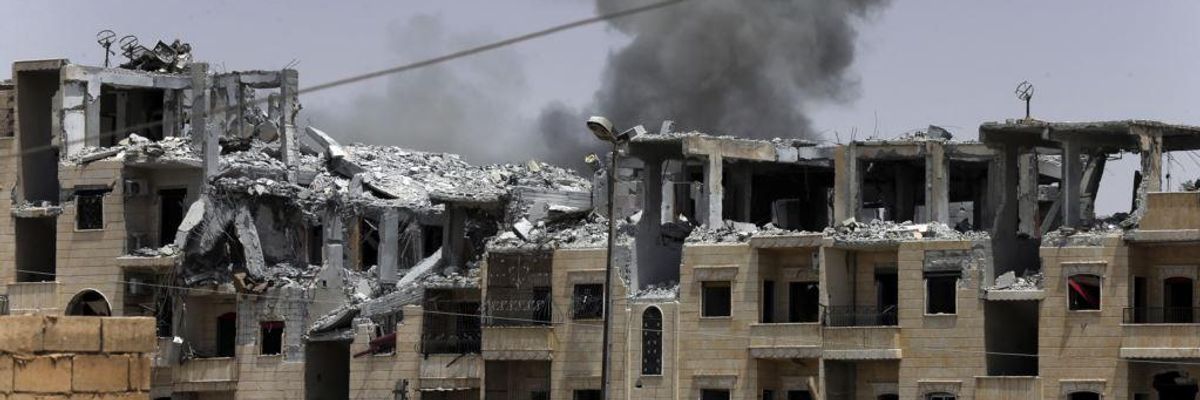You would barely know it, living in this country, but the essence of modern warfare is what our military tends to call "collateral damage": the killing or wounding of civilians, not combatants. The Global War on Terror -- more than 15 years later a no-name set of conflicts still spreading across the Greater Middle East, parts of Africa, and now the Philippines -- has been typical of this. Civilians have died in startling numbers, both directly and thanks to the hardships these conflicts have brought on. Vast populations have been uprooted from their homes -- at one point more than a million people from the Iraqi city of Mosul alone -- and often sent fleeing across borders. In other words, from Afghanistan to Libya, the war on terror has (not to mince words) been murder on civilian populations.
In mainstream news coverage, real attention is paid from time to time (and quite rightly) to the continuing brutality of the Taliban in Afghanistan and the civilian deaths caused by their insurgency. And that's even more the case with the civilian carnage caused by the Islamic State in Iraq and Syria. When it comes to the U.S. role in civilian deaths, however, it's been another matter. Clearly, it's a subject the Pentagon would prefer that we not think about and yet the human toll is all too real. As I wrote back in 2015, "In 2004 and 2006, The Lancet, a British medical journal, published studies based on scientific surveys of 'excess Iraqi deaths' since the American invasion of 2003 and, in the first case, came up with an estimated 98,000 of them and in the second with 655,000 (a much-criticized figure); such studies by medical and other researchers have never stopped. More recent counts of such deaths have ranged from 500,000 in 2013 to one million or 5% of the Iraqi population [in 2015]." The latest range of figures offered by the independent website Iraq Body Count for "documented civilian deaths from violence" since the 2003 U.S. invasion of that country is 177,941-199,231 (a conservative figure, given that word "documented," and yet far higher than the one for combatants). And keep in mind that that's just Iraq.
From the beginning, TomDispatch has made an effort to focus its attention regularly on the "collateral damage" from our conflicts. It's been our conviction that we Americans should feel some responsibility for such carnage in a war that so infamously began with the "collateral" deaths of almost 3,000 innocent American civilians and shows no signs of ending in our lifetime. This website may, for instance, be the only news source that bothered to keep track of the number of wedding parties obliterated by U.S. air power since 100 or more revelers were wiped out in a village in Eastern Afghanistan by B-52 and B-1B bombers as 2001 ended. The total: at least eight weddings in three countries (Afghanistan, Iraq, and Yemen), including brides, grooms, and even musicians hired to play at the ceremony.
In the same spirit, in "Burning Raqqa," Laura Gottesdiener, who covered the destruction of a hospital in Afghanistan by U.S. air power for TomDispatch back in 2015, turns to the American war against ISIS in Syria and the civilian mayhem taking place on the road to the "capital" of the Islamic State, Raqqa.
